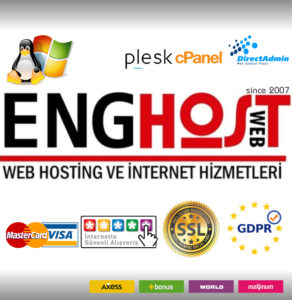Free Speech and the Public Debate in 2007

The past week has seen a healthy upheaval in the debate over free speech and what it entails within America’s borders. The question has long been disputed, propagated, not by the inclusion of the 1st Amendment to the Constitution, but by the occasional and outlandish means by which a select few will go to deny that freedom to their peers.
So, over 220 years after the Constitution was written and the colonies demanded the inclusion of a special set of provisions that would protect them from the oppressive impact of a government that does not respect its citizens, the debate is still raging on. Now, it is a question of healthy discourse and of the effects that discourse has on things like national security and freedom.
The University of Florida Debacle
The most ostentatious example of this matter arose in a University of Florida forum with John Kerry last week when a particular obnoxious student spoke out of turn and was asked to leave by campus police. For his part, John Kerry was more than happy to answer the student’s questions. However, the police had already requested he leave and when he refused they started forcibly removing him.
The end result has been immortalized in a YouTube video and across hundreds of hours of cable news broadcast as he was eventually tasered and arrested, spending a night in jail for disorderly conduct. Students sat and watched idly as he was removed from the room, however, the next day a series of protests occurred over his treatment – modest, yet publicized.
The public has been equally split on whether the student’s rights were violated or whether he was rightfully removed from him the room for his actions. Along with that debate though raises the question of just how much freedom that student deserves at the microphone and how long he is permitted to speak unfettered. Surely, his questions are protected and John Kerry was not offended, nor was anyone at the forum. Additionally, he did not react violently or hit anyone. However, when he resisted the actions of the police, a very blurry line was crossed and the debate erupted.
The Iranian President
A thousand miles away in New York City, another question of free speech has arisen with the visit of Iranian President Mahmoud Ahmadinejad to the United Nations in New York. His request to visit Ground Zero, the site of the World Trade Center, was denied by the New York Police department and the city has urged Columbia University to revoke their invitation for him to speak at a forum at the University.
Yet again, both sides have equally compelling arguments for their positions, but the question of free speech and what the University is entitled to allow on their grounds must be asked. City and national leaders have condemned the invitation because of Ahmadinejad’s statements regarding the holocaust and the purported role of Iran in supporting insurgents and terrorists in Iraq.
The gray area of how a country at war reacts to the request for equal freedoms for a world leader who is largely at odds with our own is baffling. The political and academic aspects of the argument have both been made and yet the answer is equally unclear. Likely, the Iranian President will not be attending any events outside the United Nations. His very image is volatile in a time when fear and mistrust rule public opinion. He fosters terrorism, denies horrid atrocities – including the holocaust and the 9/11 attacks – and seeks nuclear arms, all the while provoking America at every turn. Yet, the university supports their decision to allow him to speak, and the question of their right to do so will continue to be debated.
Fostering Free Debate in a Digital Age
It’s impossible to gauge the extent of public opinion on any particular subject. While, in the past, individuals reacted outwardly, taking their anger and derision to the streets to protest the failure of public policy to protect their free speech, today’s youth are firmly entrenched within the digital confines of the Internet.
It is true that the Internet provides ample forum for absolute free speech, allowing anyone with a computer and a few minutes to write whatever they want and broadcast it to the entire world. However, that same forum also jades that very same generation to the effect they can have on the world by logging off and speaking up in public.
A prime example is the note rally held in Jena, Louisiana this last week as thousands marched on the small town of 3,000 to protest the prosecution of six black teenagers accused of beating a while classmate. The protest drew people from across the country, all actively reacting to what they found audacious. The result is that they have pushed a national debate that would not have been stoked in any other manner. It takes actions to draw the attention of the attention deficit media in today’s world of 30 second YouTube videos and five word headlines. Action fosters freedoms and many of those actions have yet to be seen in this age of public outcry.
, Free Speech and the Public Debate in 2007 blog.enghost.org farkıyla sizlerle.
